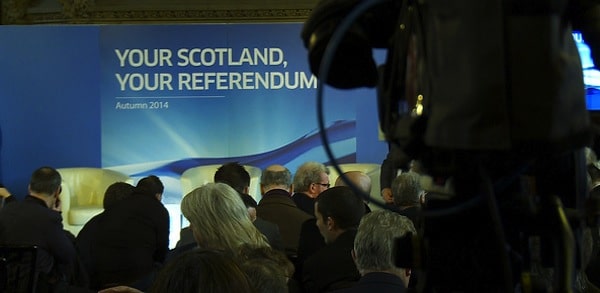
There are just 72 days to go to the referendum on the independence of Scotland on 18 September. Although the victory of the “no” seems assured, this kind of vote is loaded by the devil. Despite the campaign of both sides, polls have not moved much in recent months, hovering around 35% (down) supporters of independence and around 54% (up) for the unionists.
If the pro-independence lose, London or Edinburgh will put on the table a higher degree of autonomy for Scotland, which Alex Salmond, the First Minister and leader of the Scottish Nationalist Party, wanted in the first place. David Cameron did not let him put this third way to the vote as an open question, imposing a clear choice between “yes” or “no”.
A higher degree of autonomy can to reopen the “West Lothian question” or the “English question”. It was posed by the fact that English MPs at Westminster can not comment on matters transferred to Scottish autonomy but Scottish MPs in the British Parliament can vote on matters pertaining to England because it has no autonomy of its own, and so far, does not want it. Tam Dalyell, Labour MP for the Scottish district of West Lothian, raised this issue at the beginning of the talks of autonomy in 1977. It comes back recursively and again in the final stretch towards the referendum. This is one of the problems of having a state with a heterogeneous structure. In fact the House of Commons prepared in 2013 a report proposing several solutions, including that the Scottish Westminster MPs abstained in voting on purely English matters. This report can be interesting for the “European issue”, namely the fact that MEPs from countries outside the Euro can vote on issues that only affect the Eurozone.
But what is basically involved, even more than what is to be English or Scottish, is what it means to be British. When Scotland and England signed their Union in 1707, it was clear what it was and it would be the Britishness. As noted by John Kay: Empire and naval power. The Scots have historically participated in full in both dimensions. Today without those two components is much less clear what Britishness is. And for Kay the question of British identity has wobbled in the campaign for the “no” in Scotland. It is not being presented clearly what it means to continue to be British. It is harder to agree on what being British is than on who should be regarded as such, and even more when the UK European identity is questioned and a political party like the UK Independence (UKIP) wins. Moreover, this may reopen the Scottish question in a few years if the British as a whole decide to get out of the EU, and the Scots want to stay.
According to the latest British Social Attitudes Survey, 95% of those questioned in the UK think that to be “truly British” first you have to speak English (10 points more than 20 years ago); and second you must have the citizenship and respect the laws and institutions of the country. Far (24%) is to be a Christian.
As for the English (representing 82% of the total population), they do not want to be independent from the UK and a majority want to keep the union with Scotland, even though sharing revenues (and the oil and gas from the North Sea) and taxes are different issues. After all, the question whether Scottish identity -which is strongly rooted even if the independence does not win the day- is compatible with British identity is there to stay. In case of independence, 65% of Scots want to keep the king or queen, which agrees with the sentiments of English and Welsh on the same issue. And of course, they want to continue to get the BBC.


